 W
WSir Frank Ezra Adcock, was a British classical historian who was Professor of Ancient History at the University of Cambridge between 1925 and 1951. In addition to his academic work, he also served as a cryptographer in both World War I and World War II.
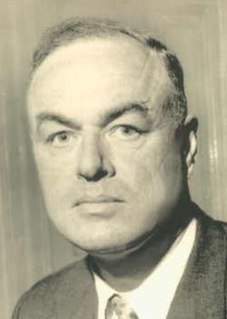 W
WSir John Addis KCMG was a British diplomat, ambassador to Laos, the Philippines and China, and a collector of Ming porcelain which he gave to the British Museum.
 W
WSir Wallace Alan Akers was a British chemist and industrialist. Beginning his academic career at Oxford he specialized in physical chemistry. During the Second World War, he was the director of the Tube Alloys project, a clandestine programme aiming to research and develop British atomic weapons capabilities, from 1941 to 1945. After the war he was director of research at Imperial Chemical Industries. He also served as a member of the Advisory Council of the Department of Scientific and Industrial Research, and the committee that drew up the organisation of what became the United Kingdom Atomic Energy Authority. He died in 1954 at the age of 66.
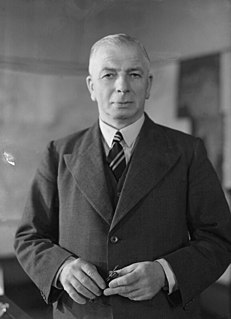 W
WAlbert Victor Alexander, 1st Earl Alexander of Hillsborough,, was a British Labour and Co-operative politician. He was three times First Lord of the Admiralty, including during the Second World War, and then Minister of Defence under Clement Attlee.
 W
WLorna Margaret Arnold was a British historian who wrote a number of books connected with the British nuclear weapons programmes.
 W
WClement Richard Attlee, 1st Earl Attlee, was a British politician who served as Prime Minister of the United Kingdom from 1945 to 1951 and Leader of the Labour Party from 1935 to 1955. He was Deputy Prime Minister during the wartime coalition government under Winston Churchill, and served twice as Leader of the Opposition from 1935 to 1940 and from 1951 to 1955.
 W
WWilliam Maxwell Aitken, 1st Baron Beaverbrook, PC, ONB, generally known as Lord Beaverbrook, was a Canadian-British newspaper publisher and backstage politician who was an influential figure in British media and politics of the first half of the 20th century. His base of power was the largest circulation newspaper in the world, the Daily Express, which appealed to the conservative working class with intensely patriotic news and editorials. During the Second World War, he played a major role in mobilising industrial resources as Winston Churchill's Minister of Aircraft Production.
 W
WLieutenant-Colonel John Theodore Cuthbert Moore-Brabazon, 1st Baron Brabazon of Tara,, HonFRPS, was an English aviation pioneer and Conservative politician. He was the first Englishman to pilot a heavier-than-air machine under power in England, and he served as Minister of Transport and Minister of Aircraft Production during World War II.
 W
WMerchant seamen crewed the ships of the British Merchant Navy which kept the United Kingdom supplied with raw materials, arms, ammunition, fuel, food and all of the necessities of a nation at war throughout World War II — literally enabling the country to defend itself. In doing this, they sustained a considerably greater casualty rate than almost every other branch of the armed services and suffered great hardship. Seamen were aged from fourteen through to their late seventies.
 W
WOliver Lyttelton, 1st Viscount Chandos, was a British businessman from the Lyttelton family who was brought into government during the Second World War, holding a number of ministerial posts.
 W
WAlfred Duff Cooper, 1st Viscount Norwich,, known as Duff Cooper, was a British Conservative Party politician, diplomat and military and political historian.
 W
WFrederick Bayes Copeman OBE (1907–1983) was an English volunteer in the International Brigades during the Spanish Civil War, commanding the British Battalion. He is also notable for contributing to London's air raid defences during the Second World War.
 W
WSir Kenneth William Cross FRCP was a British physiologist who was principally known for his fundamental contributions to the physiology of newborns that were so relevant to paediatric practice at the time.
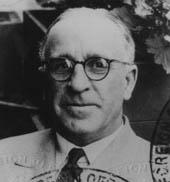 W
WMajor Francis "Frank" Edward Foley CMG was a British Secret Intelligence Service officer. As a passport control officer for the British embassy in Berlin, Foley "bent the rules" and helped thousands of Jewish families escape from Nazi Germany after Kristallnacht and before the outbreak of the Second World War. He is officially recognised as a British Hero of the Holocaust and as a Righteous Among the Nations.
 W
WAmy Constance Gentry OBE was a pioneer of women's rowing in England, starting at Weybridge Rowing Club where she founded a ladies section in 1920. She competed in a variety of styles and was the undefeated champion of the women's single scull from 1932 to 1934. She then became a successful administrator of the sport.
 W
WSir Nevile Meyrick Henderson was a British diplomat who was served as the ambassador of the United Kingdom to Nazi Germany from 1937 to 1939.
 W
WLeslie Hore-Belisha, 1st Baron Hore-Belisha, PC was a British Liberal, then National Liberal Member of Parliament (MP) and Cabinet Minister. He later joined the Conservative Party. He proved highly successful in modernizing the British road system in 1934–37 as Minister of Transport. As War Secretary, 1937–1940, he feuded with the commanding generals and was removed in 1940. Anti-semitism played a role in blocking his appointment as Minister of Information. His biographer compares his strong and weak points:He was a brilliant speaker, a warm and engaging personality, a go-getter and a persistent driver, a master of the unconventional or indirect approach, a patriot and a man of moral and physical courage, not a great intellect but an original with a flair for imaginative gestures and for public relations. He also had personal weaknesses. He was extremely self-centred and had a fine conceit of himself. At times he was accused of sharp practice.... Sharp practitioner or not, [his] quickness of mind and tongue, and transparent ambition to be seen to succeed, made him vulnerable to smears.... His over-assertiveness...led him to appear inconsiderate of the feelings and views of others.
 W
WReginald Victor Jones, FRSE, LLD was a British physicist and scientific military intelligence expert who played an important role in the defence of Britain in World War II by solving scientific and technical problems, and by the extensive use of deception throughout the war to confuse the Germans.
 W
WFrederick James Leathers, 1st Viscount Leathers,, was a British industrialist and public servant.
 W
WSylvia Hope Leith-Ross was an English anthropologist and writer who worked primarily in Nigeria.
 W
WCharles Herbert Lightoller,, RNR was a British naval officer and the second officer on board the RMS Titanic. He was the most senior member of the crew to survive the Titanic disaster. As the officer in charge of loading passengers into lifeboats on the port side, Lightoller strictly enforced the women and children only protocol, not allowing any male passengers to board the lifeboats unless they were needed as auxiliary seamen. Lightoller served as a commanding officer of the Royal Navy during World War I and was twice decorated for gallantry. During World War II, in retirement, he provided and sailed as a volunteer on one of the "little ships" that played a part in the Dunkirk evacuation.
 W
WWilliam Howard Livens DSO MC was an engineer, a soldier in the British Army and an inventor particularly known for the design of chemical warfare and flame warfare weapons. Resourceful and clever, Livens' successful creations were characterised by being very practical and easy to produce in large numbers. In an obituary, Sir Harold Hartley said "Livens combined great energy and enterprise with a flair for seeing simple solutions and inventive genius."
 W
WJohn Jestyn Llewellin, 1st Baron Llewellin was a British army officer, Conservative Party politician and minister in Winston Churchill's war government.
 W
WJames Lonsdale-Bryans (1893–1981) was a British writer, amateur diplomat and Nazi sympathiser.
 W
WMajor William Martin, RM, was a person invented by British Military Intelligence for Operation Mincemeat, the Second World War deception plan that lured German forces to Greece prior to the Allied invasion of Sicily. Also known as The Man Who never Was, Martin's personal details were created to lend credence to the scheme, which involved a body, dressed as a British officer and carrying secret documents, to wash up on shores of neutral Spain, apparently the victim of an air crash. It was intended that these documents, containing information that suggested an Allied assault on Greece was planned, should fall into the hands of German intelligence.
 W
WJohn Robert Mills was a British physicist and scientific expert who played an important role in the development of Radar and the defence of Britain in World War II. After the war he continued his career working for various British government research establishments on a variety of projects until his retirement in 1977.
 W
WHerbert Stanley Morrison, Baron Morrison of Lambeth, was a British Labour politician who held a variety of senior positions in the Cabinet. During the inter-war period, he was Minister of Transport during the 1929–1931 Labour Government, then, after losing his seat in Parliament in 1931, became Leader of the London County Council in the 1930s. Returning to the Commons in 1935, he was defeated by Clement Attlee in the Labour leadership election that year, but later acted as Home Secretary in the wartime coalition.
 W
WSpecial Constable Brandon Moss GC was a British police officer who was awarded the George Cross for his "superhuman efforts and utter disregard for personal injury" while with the Coventry Constabulary during World War II.
 W
WWalter Edward Guinness, 1st Baron Moyne, DSO & Bar, PC, was an Anglo-Irish politician and businessman. He served as the British minister of state in the Middle East until November 1944, when he was assassinated by the Jewish terrorist group Lehi. The assassination of Lord Moyne sent shock waves through Palestine and the rest of the world.
 W
WEric Arthur Blair, known by his pen name George Orwell, was an English novelist, essayist, journalist and critic. His work is characterised by lucid prose, biting social criticism, opposition to totalitarianism, and outspoken support of democratic socialism.
 W
WWyndham Raymond Portal, 1st Viscount Portal,, was a British politician.
 W
WGeoffrey Nathaniel Joseph Pyke was an English journalist, educationalist, and inventor.
 W
WStella Isaacs, Marchioness of Reading, Baroness Swanborough, GBE, née Stella Charnaud, was an English philanthropist who is best remembered as the founder and chairman of the Women's Voluntary Service (WVS), now known as Royal Voluntary Service.
 W
WRonald Thomas Reed was a BBC radio engineer who became an MI5 officer in 1940, and ran double agents during World War II.
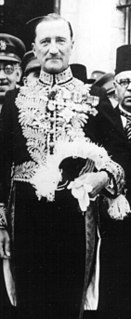 W
WMajor-General Sir Edward Louis Spears, 1st Baronet, was a British Army officer and Member of Parliament noted for his role as a liaison officer between British and French forces in two world wars. Spears was a retired Brigadier General of the British Army, and served as a Member of the British House of Commons. From 1917 to 1920 he was head of the British Military Mission in Paris.
 W
WColonel Harold Raphael Gaetano Stevens, CMG DSO, also known as Il Colonello Buonasera, served in the British army and worked as a BBC broadcaster and was known for his broadcasts to Italy during World War II.
 W
WWilliam Strang, 1st Baron Strang was a British diplomat who served as a leading adviser to the British Government from the 1930s to the 1950s and as Permanent Under-Secretary at the Foreign Office from 1949 to 1953.
 W
WWacław Struszyński was a Polish electronics engineer who made a vital contribution to the defeat of U-boats in the Battle of the Atlantic. He designed an exceptional radio antenna which enabled effective high frequency (HF) radio direction finding systems to be installed on Royal Navy convoy escort ships. Such direction finding systems were referred to as HF/DF or Huff-Duff, and enabled the bearings of U-boats to be determined when the U-boats made high frequency radio transmissions.
 W
WSusan Dorothea Mary Therese Hilton was a British radio broadcaster for the Nazi regime in Germany during the Second World War.
 W
WHenry Tandey VC, DCM, MM was a British recipient of the Victoria Cross, the highest award for gallantry in the face of the enemy that can be awarded to British and Commonwealth forces. He was the most highly decorated British private of the First World War and is most commonly remembered as the soldier who supposedly spared Adolf Hitler's life during the war. Born with the family name of Tandy, he later changed his surname to Tandey after problems with his father, therefore some military records have a different spelling of his name.
 W
WHerbert Samuel Thomas was a British political cartoonist contributing to Punch magazine and the creator of well-known British propaganda posters during the First and Second World Wars.
 W
WDetective Inspector Walter Henry Thompson was a British police officer who is best known as the bodyguard of Winston Churchill for eighteen years, between 1921 and 1935, and between 1939 and 1945 during World War II. Thompson reportedly saved Churchill's life on numerous occasions. When he finally retired after the war, he published a memoir that made him famous in the United Kingdom and the Western world.
 W
WAlan Mathison Turing was an English mathematician, computer scientist, logician, cryptanalyst, philosopher, and theoretical biologist. Turing was highly influential in the development of theoretical computer science, providing a formalisation of the concepts of algorithm and computation with the Turing machine, which can be considered a model of a general-purpose computer. Turing is widely considered to be the father of theoretical computer science and artificial intelligence.
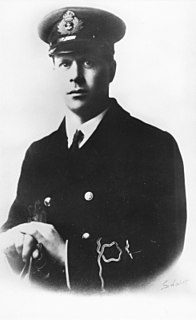 W
WSir Barnes Neville Wallis was an English scientist, engineer and inventor. He is best known for inventing the bouncing bomb used by the Royal Air Force in Operation Chastise to attack the dams of the Ruhr Valley during World War II.
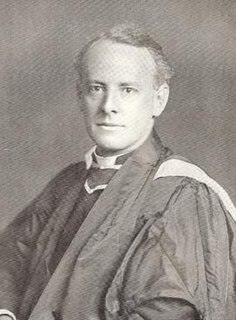 W
WLeslie Dixon Weatherhead was an English Christian theologian in the liberal Protestant tradition. Weatherhead was noted for his preaching ministry at City Temple in London and for his books, including The Will of God, The Christian Agnostic, and Psychology, Religion, and Healing.
 W
WThomas Henry Wintringham was a British soldier, military historian, journalist, poet, Marxist, politician and author. He was a supporter of the Home Guard during the Second World War and was one of the founders of the Common Wealth Party.
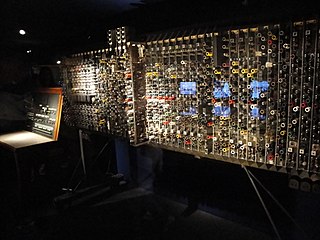 W
WMichael Woodger is a pioneering English computer scientist. He was influential in the development of the early Pilot ACE computer, working with Alan Turing, and later the design and documentation of programming languages such as ALGOL 60 and Ada. He was based at the National Physical Laboratory (NPL) located in Teddington, London, for most of his career.